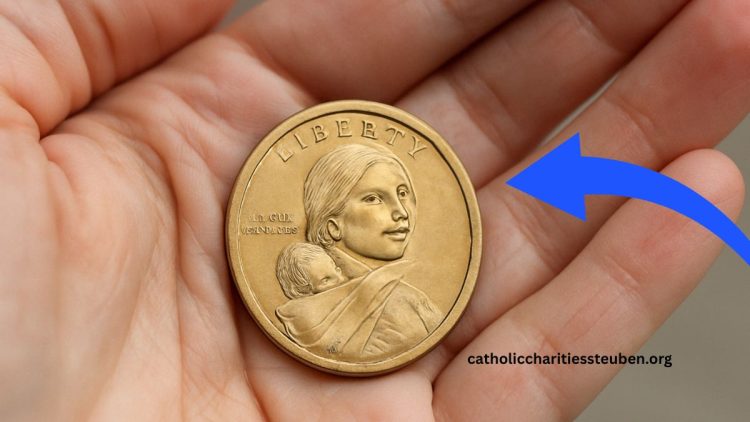You might be carrying a small fortune without even realizing it. Some rare $1 coins—especially certain Eisenhower or Susan B. Anthony Dollars—are valued up to $14,000. These coins are worth far more than face value due to mint errors, low mintage, or pristine condition.
In this guide, we’ll break down everything you need to know about these coins, including how to identify, evaluate, and potentially cash in on this unexpected windfall.
$1 Coin Worth $14,000 – What Makes It Special?
| Feature | Details |
|---|---|
| Coin Type | Eisenhower Dollar (1971–1978), Susan B. Anthony Dollar (1979–1981, 1999) |
| Top Value | Up to $14,000 |
| Key Factors | Minting errors, no mint marks, uncirculated condition |
| Evaluation | Use professional grading (e.g., PCGS), check mint marks |
| Where to Find | Coin jars, inherited collections, flea markets, pocket change |
These rare $1 coins often go unnoticed in circulation but can sell for thousands at auction—especially if they’re in mint condition or have error markings.
Why Some $1 Coins Are Worth Thousands
The value of these coins depends on several factors:
- Minting Errors: Misprints, double strikes, or missing mint marks can make a coin extremely rare.
- Low Circulation Numbers: Certain coins were produced in limited quantities.
- Collector Demand: High-grade coins are always in demand among numismatists.
- Historical Significance: Eisenhower and Susan B. Anthony coins carry important cultural symbolism.
How to Identify a $14,000 $1 Coin
1. Identify the Coin Type
Start by checking which dollar coin you have:
- Eisenhower Dollar (1971–1978): Large, silver-colored coins.
- Susan B. Anthony Dollar (1979–1981, 1999): Smaller, with an 11-sided edge.
2. Look for Mint Marks
Mint marks indicate where the coin was struck:
- No Mint Mark: Philadelphia (sometimes more valuable)
- D: Denver
- S: San Francisco
Rare coins often lack a mint mark or have misplaced marks—a key factor in their value.
3. Examine the Coin’s Condition
Grading is essential. The Professional Coin Grading Service (PCGS) uses a scale of 1 to 70:
- Mint State (MS65 and above): High collector interest
- Circulated: Visible wear but may still have value
Use magnifying tools and proper lighting to inspect your coin for any blemishes or flaws.
4. Check for Errors
Valuable errors include:
- Double Dies: Letters or numbers appear doubled
- Off-Center Strikes: The design is misaligned
- Missing Mint Marks: Some coins were released without mint identifiers
Real Examples of $1 Coins Worth $14,000
| Coin | Value | Reason |
|---|---|---|
| 1974-D Eisenhower Dollar | $14,100 | Rare, uncirculated, and near-perfect grade |
| 1979-S Susan B. Anthony | ~$14,000 | Mint error + pristine condition |
These coins sold at major auctions and prove that a simple $1 can become a high-value asset with the right characteristics.
How to Evaluate and Sell Your Coin
Step 1: Don’t Clean It
Avoid using soap or polish, which can damage the coin and reduce its value.
Step 2: Use Online Valuation Tools
Websites like PCGS.com or NGCcoin.com allow you to estimate a coin’s value by entering details like mint mark, year, and condition.
Step 3: Get a Professional Appraisal
Visit a certified coin dealer or submit your coin to PCGS or NGC for authentication and grading.
Step 4: Store It Safely
Use acid-free holders, coin flips, or temperature-controlled storage to protect your coin’s value long-term.
That seemingly ordinary $1 coin in your wallet or change jar could be worth up to $14,000. With millions of coins in circulation, valuable examples often go unnoticed.
Whether you’re an amateur collector or just curious, it pays to inspect your spare change—you might be holding a fortune in your hand.
Start by checking the mint mark, examining the condition, and looking for errors. Then consult a professional to confirm its worth. With the right coin, your $1 could turn into thousands overnight.
FAQs
How can I tell if my $1 coin is rare?
Check the mint mark, condition, and year. Coins with errors or from limited mintage runs are usually more valuable.
Are all Susan B. Anthony or Eisenhower Dollars valuable?
No. Only coins with rare features like minting errors, missing marks, or in uncirculated condition are worth significantly more.
Where should I sell a valuable $1 coin?
Consider auctions (e.g., Heritage Auctions), certified dealers, or marketplaces like eBay—but only after professional grading.

